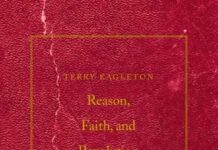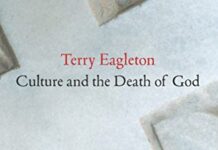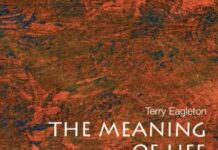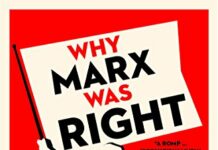
Ebook Info
- Published: 2016
- Number of pages: 189 pages
- Format: PDF
- File Size: 0.84 MB
- Authors: Terry Eagleton
Description
One of our most brilliant minds offers a sweeping intellectual history that argues for the reclamation of culture’s valueCulture is a defining aspect of what it means to be human. Defining culture and pinpointing its role in our lives is not, however, so straightforward. Terry Eagleton, one of our foremost literary and cultural critics, is uniquely poised to take on the challenge. In this keenly analytical and acerbically funny book, he explores how culture and our conceptualizations of it have evolved over the last two centuries—from rarified sphere to humble practices, and from a bulwark against industrialism’s encroaches to present-day capitalism’s most profitable export. Ranging over art and literature as well as philosophy and anthropology, and major but somewhat “unfashionable” thinkers like Johann Gottfried Herder and Edmund Burke as well as T. S. Eliot, Matthew Arnold, Raymond Williams, and Oscar Wilde, Eagleton provides a cogent overview of culture set firmly in its historical and theoretical contexts, illuminating its collusion with colonialism, nationalism, the decline of religion, and the rise of and rule over the “uncultured” masses. Eagleton also examines culture today, lambasting the commodification and co-option of a force that, properly understood, is a vital means for us to cultivate and enrich our social lives, and can even provide the impetus to transform civil society.
User’s Reviews
Reviews from Amazon users which were colected at the time this book was published on the website:
⭐This is a fascinating examination of Culture by one of our most distinguished and insightful students of that subject. He begins with definitions. What is Culture per se? How is it to be distinguished from, e.g., Civilization? He examines multiple meanings of the term and then goes on to look at important commentators on the subject: Burke, Herder, Oscar Wilde, Marx, Freud, et al. Those who are surprised that TE uses Burke as something of an exemplar should not be. While TE is Marxistic and Burke is a classic conservative voice there are multiple sides to Burke’s thought. The causes to which he devoted his life (as we were once taught) were often defenses of the colonized and the downtrodden. Those familiar with his view of the French revolution should look at his indictment of Warren Hastings and his actions in India.Much of the book is an extended reflection, not so much a process of free association but one in which TE examines multiple dimensions of culture, including, e.g., the manner in which culture is seen by the Frankfurt School and the postmodernists.The kicker comes in the conclusion. One of TE’s hallmarks is his ability to see the wisdom (and nonsense) in a multiplicity of positions, to bring in Marx when we don’t expect him but then focus upon Marx’s shortsightedness (or simple recapitulations of Hegel). Bottom line: he is an intellectual, not an ideologue.The conclusion begins with what is now seen as a “conservative” notion: “The idea of culture is traditionally bound up with the concept of distinction” (p. 155). Spiritual hierarchy, he argues, goes hand in hand with social inequality, but “the aim of advanced capitalism, by contrast, is to preserve inequality while abolishing hierarchy” (p. 155). Hollywood does not exist to produce art; it exists to produce profits for its shareholders. It valorizes “diversity” in order to bring in a larger number of ticket purchasers. Thus, the university faculty who deride the notion of “distinction” and conflate the notion of evil “discrimination” with the quite necessary forms of discrimination which undergird ratiocination play right into the capitalists’ hands. In examining all forms of popular culture they are unconsciously reinforcing the methods of the Hollywood producers whose eyes are fixated on the bottom line. In their systematic lowering of expectations and dismissal of the notion of “distinction” they are the unwitting co-conspirators of the corporatist administrators, whose goal is the acquisition of tuition revenue to support administrative self-aggrandizement and the grotesque inequality represented by their salaries. In return, the faculty’s lack of academic distinction is rewarded by the reduction in the size of their tenure track faculty.TE puts it this way:“A centuries-old tradition of universities as centres of humane critique is currently being scuppered by their conversion into pseudo-capitalist enterprises under the sway of a brutally philistine managerial ideology. Once arenas of critical reflection, academic institutions are being increasingly reduced to organs of the marketplace, along with betting shops and fast food joints. They are now for the most part in the hands of technocrats for whom values are largely a matter of real estate. . . . . The dream of our universitites’ boneheaded administrators is of a bookless and paperless environment, books and paper being messy, crumply stuff incompatible with a gleaming neo-capitalist wasteland consisting of nothing but machines, bureaucrats and security guards. . . . The death of the humanities is now an event waiting on the horizon” (pp. 152-53).Strong stuff but dead on.Highly recommended.
⭐As always Eagleton is a joy to read, and correct.. . . . . . . . . .
⭐A great book by Eagleton but it is simply a reprint of a book published back in 2000. It is advertised as a new and original study, so be forewarned if you have Eagleton’s earlier “The Idea of Culture.”
⭐Very clever and insightful
⭐Great modern thinker and critic, very relevant today. His discourse on modern “culture” is biting and powerful. Great style with his customary light touch and humour.
⭐the book was damaged during transport. something extremely heavy must of fell on it because it created a hole that goes through the hardcover and about the entire first chapter.
⭐nobody does it better
⭐Culture is Terry Eagleton’s discussion of what culture is, what it isn’t and what it shouldn’t be. In true Eagleton fashion he will make the reader chuckle then just as quickly start fuming. That has always been his strength, his ability to express his opinions clearly while pricking the skin of those he would argue against so that reading him becomes an active engagement whether you want it to be or not.When I used to use his Literary Theory: An Introduction to teach I found his ability to explain theories to which he did not subscribe well balanced and even when he interjected his views he did so fairly. I find that lacking in this book. Partly, I’m sure, because this is not meant to explain various schools of thought but to grapple with a concept from his own. Yet he sets up some thought, particularly postmodernism (or at least the aspects which adopt any form of relativism), as borderline stupid. Most people who embrace some form of cultural relativism do not practice the extreme version he argues against. This serves to make one whole chapter and parts of every other pointless strawman arguments. I expected better from someone for whom I have such high regard.That grudge he seems to have with someone or something in his past which makes him irrational when writing about postmodernism does not detract from a lot of what he has to say. The distinctions he makes and the ways in which he demonstrates the various definitions and, more importantly, uses of culture are spot on for the most part. These portions of the book are reminiscent of his better works on ideology, aesthetics and theory in general.I would recommend this to anyone interested in cultural and literary theory, capitalism and Marxist theory as it applies to culture. Eagleton never fails to engage the reader regardless of the degree of agreement.Reviewed from a copy made available through Goodreads First Reads.
⭐A very pleasant read full off allusions and humour!!! I will definitely read further book of this author and can recommend him to everyone for whom the a book must offer an an intellectual challenge to the reader.Toi much « cuteness ». Toi much « I know what I am talking about ».
⭐Interesting but not as good as Scruton and Dalrymple.
⭐Excellent product and service.
Keywords
Free Download Culture in PDF format
Culture PDF Free Download
Download Culture 2016 PDF Free
Culture 2016 PDF Free Download
Download Culture PDF
Free Download Ebook Culture





